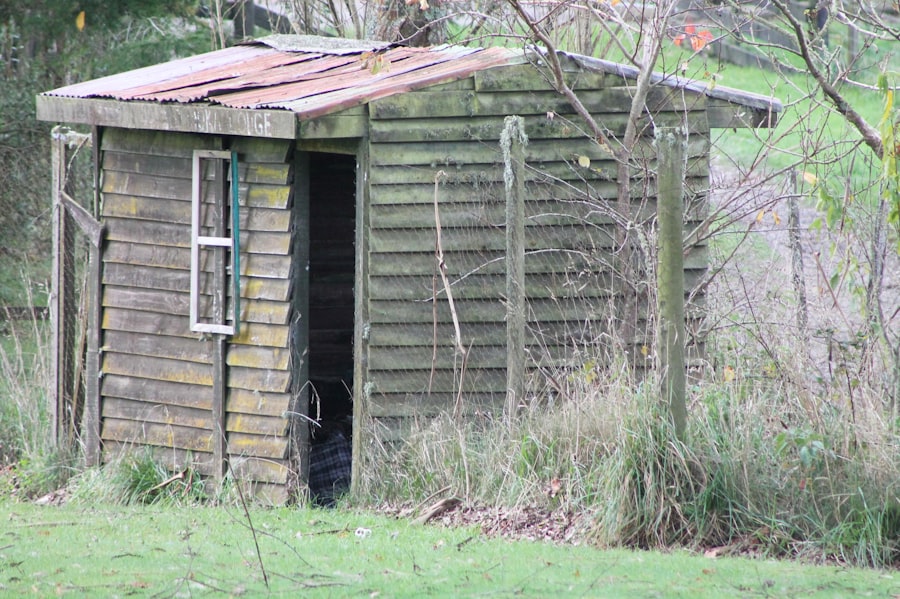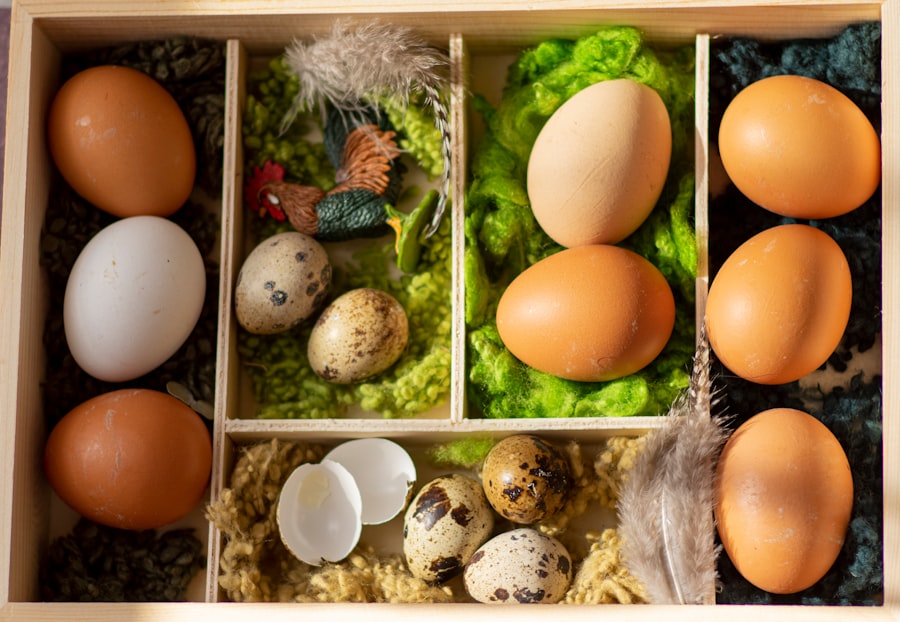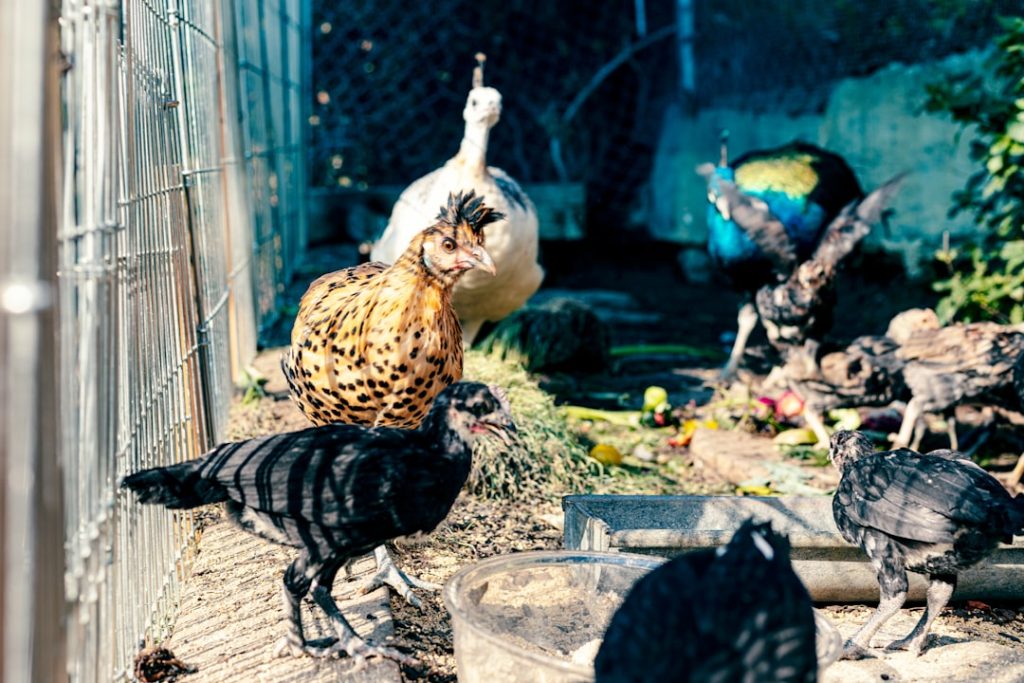Bush turkeys (Alectura lathami), also called brush turkeys or scrub turkeys, are large ground-dwelling birds endemic to Australia. These megapodes are renowned for their distinctive nesting behavior, which involves constructing large mounds of vegetation for incubation and breeding purposes. Understanding bush turkey behavior is essential for developing effective strategies to prevent them from accessing chicken coops.
These birds exhibit territorial tendencies and may display aggression when they perceive threats or while protecting their nesting sites. Bush turkeys are opportunistic feeders and may be attracted to chicken coops as potential food sources. Their persistence and intelligence make them challenging to deter once they have identified a desirable area.
Effective methods for keeping bush turkeys away from chicken coops typically involve a multi-faceted approach. This may include creating physical barriers, implementing various deterrent techniques, and ensuring that chicken coops are secure and well-protected. By comprehending bush turkey behavior and habits, poultry keepers can develop more targeted and successful strategies to safeguard their chickens and prevent conflicts with these native Australian birds.
Table of Contents
- 1 Creating a Barrier to Keep Bush Turkeys Out
- 2 Implementing Scare Tactics to Deter Bush Turkeys
- 3 Providing a Safe and Secure Coop for Chickens
- 4 Using Natural Repellents to Keep Bush Turkeys Away
- 5 Consistently Monitoring and Maintaining the Chicken Coop
- 6 Seeking Professional Help if Necessary
- 7 FAQs
Key Takeaways
- Bush turkeys are attracted to shiny objects and may cause damage to gardens and chicken coops.
- Creating a physical barrier such as a fence or netting can effectively keep bush turkeys out of a specific area.
- Scare tactics like loud noises or motion-activated devices can deter bush turkeys from entering a space.
- A secure coop with strong walls and a predator-proof design is essential for keeping chickens safe from bush turkeys.
- Natural repellents like citrus peels or chili powder can be used to discourage bush turkeys from approaching a chicken coop.
- Regularly monitoring the coop for any signs of damage and maintaining its security is crucial for protecting chickens from bush turkeys.
- If bush turkey behavior becomes a persistent problem, seeking professional help from wildlife experts may be necessary.
Creating a Barrier to Keep Bush Turkeys Out
Physical Barriers: The First Line of Defense
One effective way to keep bush turkeys out of the chicken coop is by creating a physical barrier that prevents them from gaining access to the area. This can be done by installing a fence around the perimeter of the coop that is tall enough to prevent the turkeys from flying over it. The fence should also be buried into the ground to prevent the turkeys from digging underneath it.
Additional Deterrents: Roofing and Noise-Making Devices
Additionally, adding a roof or netting over the top of the coop can further deter the turkeys from gaining access from above. Another option for creating a barrier is to use motion-activated sprinklers or noise-making devices that startle the turkeys when they approach the coop.
Effective and Humane Deterrents
These types of barriers can be effective in deterring the turkeys from entering the area without causing them harm. By creating a physical barrier, it becomes much more difficult for the bush turkeys to access the coop, reducing the risk of harm to the chickens and their eggs.
Implementing Scare Tactics to Deter Bush Turkeys

In addition to creating a physical barrier, implementing scare tactics can also be an effective way to deter bush turkeys from entering the chicken coop. One common scare tactic is to use visual deterrents such as scarecrows or reflective objects that move in the wind. These visual deterrents can startle the turkeys and make them think twice about approaching the coop.
Another option is to use noise-making devices such as bells or wind chimes that create a loud and unexpected sound when the turkeys come near. Another effective scare tactic is to use natural predators as a deterrent. Placing decoy predators such as fake snakes or predatory bird silhouettes near the coop can make the turkeys feel threatened and less likely to approach the area.
By implementing scare tactics, it becomes possible to deter bush turkeys from entering the coop without causing them harm, ultimately keeping the chickens safe and secure.
Providing a Safe and Secure Coop for Chickens
One of the most important steps in keeping chickens safe from bush turkeys is to provide them with a safe and secure coop. This means ensuring that the coop is well-built and free from any potential entry points for the turkeys. The coop should have a solid roof and walls that are tall enough to prevent the turkeys from gaining access from above.
Additionally, all doors and windows should be securely closed and latched to prevent the turkeys from entering. It is also important to provide the chickens with a secure outdoor run that is enclosed with a fence or netting to prevent the turkeys from gaining access to them while they are outside of the coop. The run should be large enough to allow the chickens to move around freely while still being protected from potential threats.
By providing a safe and secure coop for the chickens, it becomes much easier to keep them safe from bush turkeys and other potential predators.
Using Natural Repellents to Keep Bush Turkeys Away
In addition to physical barriers and scare tactics, using natural repellents can also be an effective way to keep bush turkeys away from the chicken coop. One common natural repellent is citrus peels, which can be scattered around the perimeter of the coop to deter the turkeys from approaching. The strong scent of citrus is known to be unpleasant for many birds, making it an effective natural deterrent.
Another natural repellent is chili pepper, which can be mixed with water and sprayed around the coop to create a barrier that is unpleasant for the turkeys. The spicy scent of chili pepper can deter the turkeys from approaching while also being safe for the chickens and other wildlife in the area. By using natural repellents, it becomes possible to keep bush turkeys away from the chicken coop without causing harm to them or the chickens.
Consistently Monitoring and Maintaining the Chicken Coop

Inspecting for Damage and Entry Points
Regularly checking the coop for any signs of damage or potential entry points is essential. This includes looking for any weaknesses in the structure that could allow bush turkeys to gain access.
Maintaining a Clean and Safe Environment
Regular maintenance of the coop also includes keeping it clean and free from potential hazards that could pose a threat to the chickens. This involves regularly cleaning out bedding, removing any debris or clutter, and ensuring that all doors and windows are in good working condition.
Preventing Attractants and Ensuring Security
Keeping the area around the coop clear of potential attractants such as food scraps or standing water is also crucial. By consistently monitoring and maintaining the chicken coop, it becomes much easier to keep it safe and secure from potential threats such as bush turkeys.
Seeking Professional Help if Necessary
In some cases, dealing with bush turkeys may require seeking professional help to effectively deter them from entering the chicken coop. Professional wildlife experts or pest control services may have specialized knowledge and experience in dealing with bush turkeys and can provide valuable insight into effective deterrent methods. They may also be able to offer additional solutions such as installing motion-activated cameras or traps that can help identify and capture any persistent turkeys.
Seeking professional help can also be beneficial in ensuring that any deterrent methods used are safe and humane for both the turkeys and the chickens. Professional experts can provide guidance on using non-lethal deterrents that effectively keep bush turkeys away without causing harm to them or other wildlife in the area. By seeking professional help if necessary, it becomes possible to effectively address any issues with bush turkeys while keeping the chickens safe and secure in their coop.
In conclusion, understanding the behavior of bush turkeys is crucial in finding effective ways to keep them away from chicken coops. Creating a barrier, implementing scare tactics, providing a safe and secure coop for chickens, using natural repellents, consistently monitoring and maintaining the chicken coop, and seeking professional help if necessary are all important steps in effectively keeping bush turkeys at bay. By taking these steps, it becomes possible to protect chickens from potential harm while also ensuring that bush turkeys are deterred in a safe and humane manner.
If you’re looking for more tips on keeping your chickens safe and healthy, check out this article on choosing the right flooring for your chicken coop. It’s important to create a safe and comfortable environment for your chickens, and the type of flooring you use can make a big difference.
FAQs
What are bush turkeys?
Bush turkeys, also known as Australian brush-turkeys, are large, ground-dwelling birds native to Australia. They are known for their distinctive appearance and behavior, including their habit of building large nesting mounds.
Why do bush turkeys pose a threat to chickens?
Bush turkeys can pose a threat to chickens by competing for food and resources, as well as potentially causing damage to chicken coops and nesting areas. Additionally, bush turkeys may exhibit aggressive behavior towards chickens, especially during the breeding season.
What are some methods for keeping bush turkeys away from chickens?
Some methods for keeping bush turkeys away from chickens include using physical barriers such as fences or netting, creating a designated feeding area for the bush turkeys to divert their attention away from the chickens, and using scare tactics such as loud noises or visual deterrents.
Are there any natural deterrents for keeping bush turkeys away from chickens?
Some natural deterrents for keeping bush turkeys away from chickens include planting dense vegetation around the chicken coop to create a barrier, as well as using natural scents such as citrus or chili to deter the bush turkeys.
Is it legal to harm or kill bush turkeys to protect chickens?
In Australia, bush turkeys are protected under wildlife conservation laws, and it is illegal to harm or kill them without proper permits or authorization. It is important to explore non-lethal methods for managing conflicts between bush turkeys and chickens.
Meet Walter, the feathered-friend fanatic of Florida! Nestled in the sunshine state, Walter struts through life with his feathered companions, clucking his way to happiness. With a coop that’s fancier than a five-star hotel, he’s the Don Juan of the chicken world. When he’s not teaching his hens to do the cha-cha, you’ll find him in a heated debate with his prized rooster, Sir Clucks-a-Lot. Walter’s poultry passion is no yolk; he’s the sunny-side-up guy you never knew you needed in your flock of friends!







